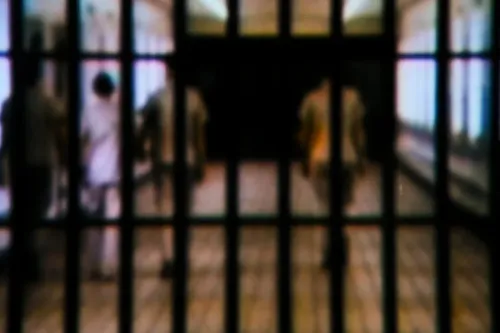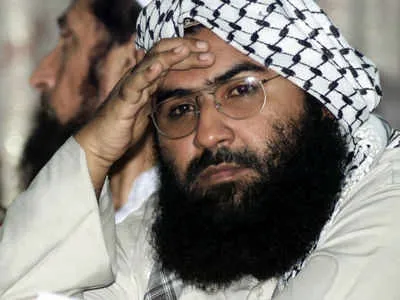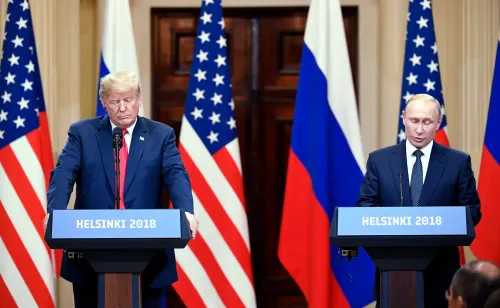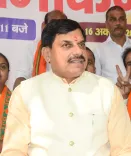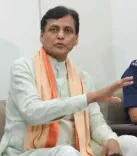What happened during Nepal PM Sushila Karki's meeting with party leaders?
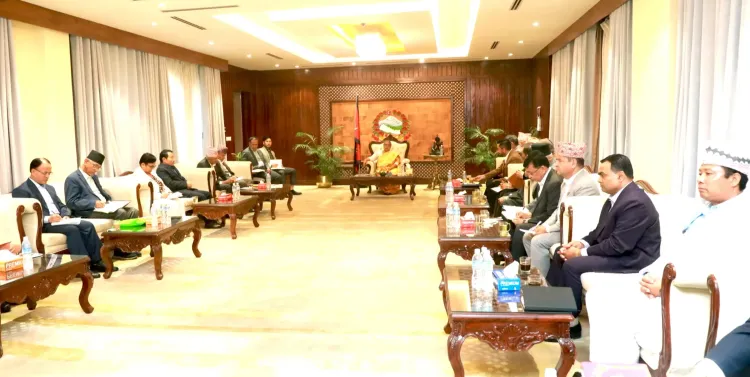
Synopsis
Key Takeaways
- First meeting of PM Karki with political party leaders.
- Concerns raised about law and order ahead of elections.
- Commitment to conducting free and fair elections.
- Government faced challenges from GenZ protests.
- Political skepticism regarding the government's electoral intentions.
Kathmandu, Oct 21 (NationPress) The interim Prime Minister of Nepal, Sushila Karki, convened her inaugural meeting with key political party leaders on Tuesday, marking her first engagement in this capacity since her appointment as head of the government over a month ago.
This meeting comes amid rising discontent from major political factions regarding the government’s inaction on initiating dialogue, despite the declaration of new elections for the House of Representatives scheduled for March 5 next year. In light of this, Prime Minister Karki reached out to party leaders for discussions.
Following the tragic GenZ protests on September 8 and 9, which resulted in the loss of 76 lives due to related unrest, former Prime Minister KP Sharma Oli stepped down, leading to Karki's government formation on September 12.
In response to GenZ leaders' demands, she advised President Ram Chandra Poudel to dissolve the House of Representatives, which he subsequently did, while also announcing the date for the new elections.
While Prime Minister Karki has reiterated that her government's primary objective is to conduct elections within a six-month timeframe, the criticism regarding the lack of dialogue with political entities—who are anticipated to participate in the elections—has raised concerns among party leaders.
On October 10, she took part in a meeting led by President Poudel, which included senior political party leaders, where the President encouraged them to actively engage in the upcoming elections.
According to a statement released by the Prime Minister’s Secretariat on Tuesday, Prime Minister Karki addressed the reasons behind the delay in engaging with political parties.
“The government had to prioritize addressing the concerns of the GenZ protesters, ensuring treatment for the injured, managing the remains of the deceased, and supporting their families,” she explained.
Karki further noted that some GenZ youth initially opposed discussions with political parties, but President Poudel’s intervention was crucial in facilitating dialogue.
The Prime Minister's Chief Advisor, Ajaya Bhadra Khanal, indicated that the discussions mainly revolved around the current law and order situation.
During the meeting, party leaders specifically voiced their worries about ensuring a secure environment for the elections. Prime Minister Karki assured that the government is dedicated to conducting elections in a free, fair, and secure manner.
“We have mobilized security agencies for this purpose,” she affirmed. “Let’s proceed to the polls and contribute to a successful electoral process.”
Concerns have been raised by party leaders and security experts regarding the government’s inability to retrieve looted arms and ammunition, as well as to recapture escapees from prisons during the GenZ protests. They warned that these factors could potentially threaten law and order before the elections.
According to police reports, over 1,200 rifles and pistols, along with nearly 100,000 rounds of ammunition, were stolen during the protests. Additionally, around 15,000 prisoners fled from jails, with some reportedly resuming criminal activities. Many of the stolen weapons remain unaccounted for, and numerous escaped convicts are still at large.
During the Tuesday meeting, leaders from the Communist Party of Nepal (Unified Marxist-Leninist), or CPN (UML), voiced skepticism regarding the government’s capability to conduct the elections, as noted by Minister Jagadish Kharel.
The UML, headed by former Prime Minister KP Sharma Oli, has been advocating for the reinstatement of the dissolved House of Representatives, claiming its dissolution was unconstitutional.
In an interaction with editors on Sunday, the former Prime Minister asserted that the current administration has no genuine intention of holding elections, despite their public statements.
Senior representatives from seven political parties—including the Nepali Congress, CPN (UML), and CPN (Maoist Centre)—gathered at the Prime Minister’s residence for discussions, as reported by the Prime Minister’s Secretariat. However, prominent leaders like former Prime Ministers Sher Bahadur Deuba, KP Sharma Oli, and Pushpa Kamal Dahal (Prachanda) were absent from the meeting.

